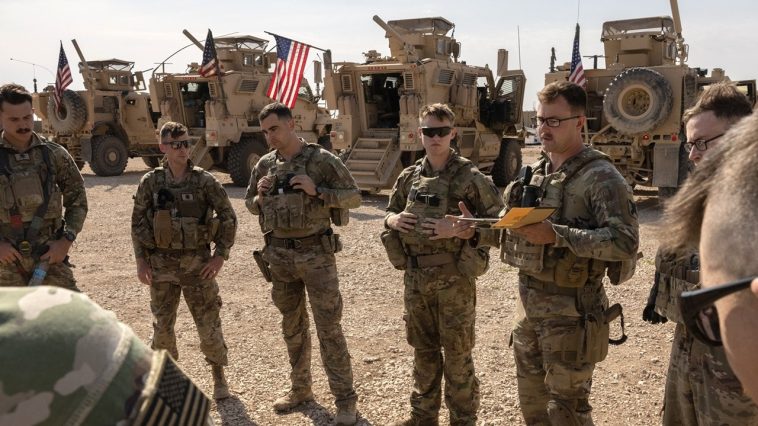LISTEN HERE:
In a recent interaction, United States Senator Lindsey Graham, hailing from South Carolina, persistently called upon Defense Secretary Lloyd Austin to clarify the potential retaliation to an attack instigated by Iranian proxies that resulted in an American casualty.
However, a concrete response was not provided. The assaults on U.S. ground by Iran-supported factions in Iraq and Syria have escalated, tallying up to a minimum of 24 instances since the 17th of October.
On the previous Friday, the U.S. launched a counter-offensive, directing bombings at two facilities in the eastern region of Syria. These establishments were host to the Iranian proxy militias and the Islamic Revolutionary Guard Corps (IRGC) of Tehran. Nevertheless, such action has not brought about a decline in the threat to U.S. service members.
Approximately 2,500 U.S. troops are stationed in Iraq, with an added 900 in Syria, as reported by the Reuters. Their assignment involves extending support to local ally militias in their relentless struggle against the terrorist outfit known as the Islamic State.
Interestingly, while no casualties among the U.S. military personnel have been reported by the Pentagon, a number of injuries have indeed been recorded. In light of the recent attacks, 21 U.S. troops reportedly sustained minimal injuries but have since been reinstated to active duty.
The Pentagon has also elaborated on a situation where a U.S. contractor experienced a heart attack in the midst of what later was identified as a false alarm situation. This occurred when the contractor was taking shelter during what was believed to be another episode of aggression.
Uncertainties have recently arisen with mounting reports of two additional assaults; however, confirmation is still pending. This raises alarming questions as to the safety of our soldiers stationed abroad, and also about the effectiveness of the deterrence policies currently in place.
Senator John Hoeven of North Dakota raised his concerns, asking straightforwardly, ‘Why are we not engaging in a more powerful counter-offensive? What is the reason for not sending a firm and unambiguous message to those hammering our bases and our servicemen?’
‘Our policy ensures that we reserve the right to react in compliance with our judgment of the situation and timing,’ came the response from Defense Secretary Austin. ‘We have voiced this stance before, and let there be no doubt that we continue to hold, firmly, onto these tenets.’
The seemingly open-ended response from the defense secretary demonstrates the increasing complexity and challenges involved in navigating this pointed issue. The gray area surrounding the question of what justifies retaliation remains a major consideration, leaving room for much debate and discussion.
But it also underscores the relentless counterweight that the U.S. is facing in the middle-eastern region. The strategies and maneuvers involve several considerations, including not just military power but diplomatic relationships, regional stability, strategic objectives, and above all, human lives.
The engagements in Iraq and Syria have moved beyond conventional warfare and requires an approach that balances immediate security concerns with long-term strategic objectives. It is clear that the consequences of these engagements will have far-reaching effects, touching various aspects of national security, foreign policy, and beyond.
Hence, the precise nature of response and its timing would reflect both the immediate needs of protecting our countrymen serving overseas, and the larger geopolitical dynamics of the region. These considerations will form key elements of the judgment and decision-making process ensconced in Austin’s statement.
It remains to be seen how the balance will be struck between immediate security needs and long-term strategy. What is clear is that it will demand a combined approach of strategic, tactical, and diplomatic maneuvering that meets America’s objectives without compromising its responsibility and commitment to regional peace and stability.



